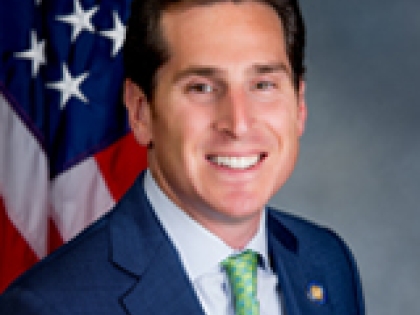
New York judges must now give a reason for recusal under new state law
New York judges must now give a reason when they recuse themselves from litigation under a new state law that stems from a politically charged legal fight in the Town of Hempstead.
The legislation, sponsored by Sen. Todd Kaminsky (D-Long Beach), applies to all state and local judges and requires they offer an explanation when opting out of legal proceedings, except when that explanation is personal or embarrassing.
The state legislature approved the measure in July and Gov. Andrew M. Cuomo signed it Thursday night, Kaminsky said Sunday.
The new law is "a very important step toward restoring people's faith in the judiciary," Kaminsky said. "When you don't have transparency it breeds cynicism and people lose trust in the judicial process."
Cuomo's office did not respond to a request for comment.
The signing of the bill comes a year after three state Supreme Court judges in Nassau County recused themselves in the span of three weeks from litigation between Hempstead and former town contractor Double Eagle Golf. None of judges provided an explanation.
Kaminsky said the political underpinnings of the case invited speculation that there were political motives behind the silent recusals.
Double Eagle operated Hempstead's Lido Beach Golf Club from 1997 to 2017. The company sued the town in May 2017, arguing Hempstead owed it close to $800,000 for improvements it made at the facility. The town countersued, saying Double Eagle was on the hook for those costs and the company had let the facility deteriorate.
The two sides reached a settlement last year. But before it was finalized, Hempstead's former Democratic supervisor, Laura Gillen, called into question the ethics of the deal in light of nearly $1 million Double Eagle had paid to a company controlled by Joseph Cairo, now chairman of the Nassau County GOP, for work related to the course.
The Hempstead Town Board then voted down the settlement and the judges — Timothy Driscoll, Vito DeStefano and Jerome Murphy — recused themselves from the case, which was transferred to a judge in Westchester County.
"It cannot be that an entire courthouse of judges is unable to hear a case in a county and the public is left to guess why," Kaminsky said. "The Double Eagle case really cried out for the need for this law."
Hempstead spokesman Greg Blower did not immediately respond to a question Sunday about the status of the litigation. A Dec. 10 letter to the Westchester judge from Hempstead's outside counsel in the case states the town and Double Eagle "are at an impasse which will not and cannot be resolved through mediation."
The town and company's "respective positions are polar opposite from one another," the letter continued. "Simply put, the parties are alleging millions of dollars of potential damages against one another."
